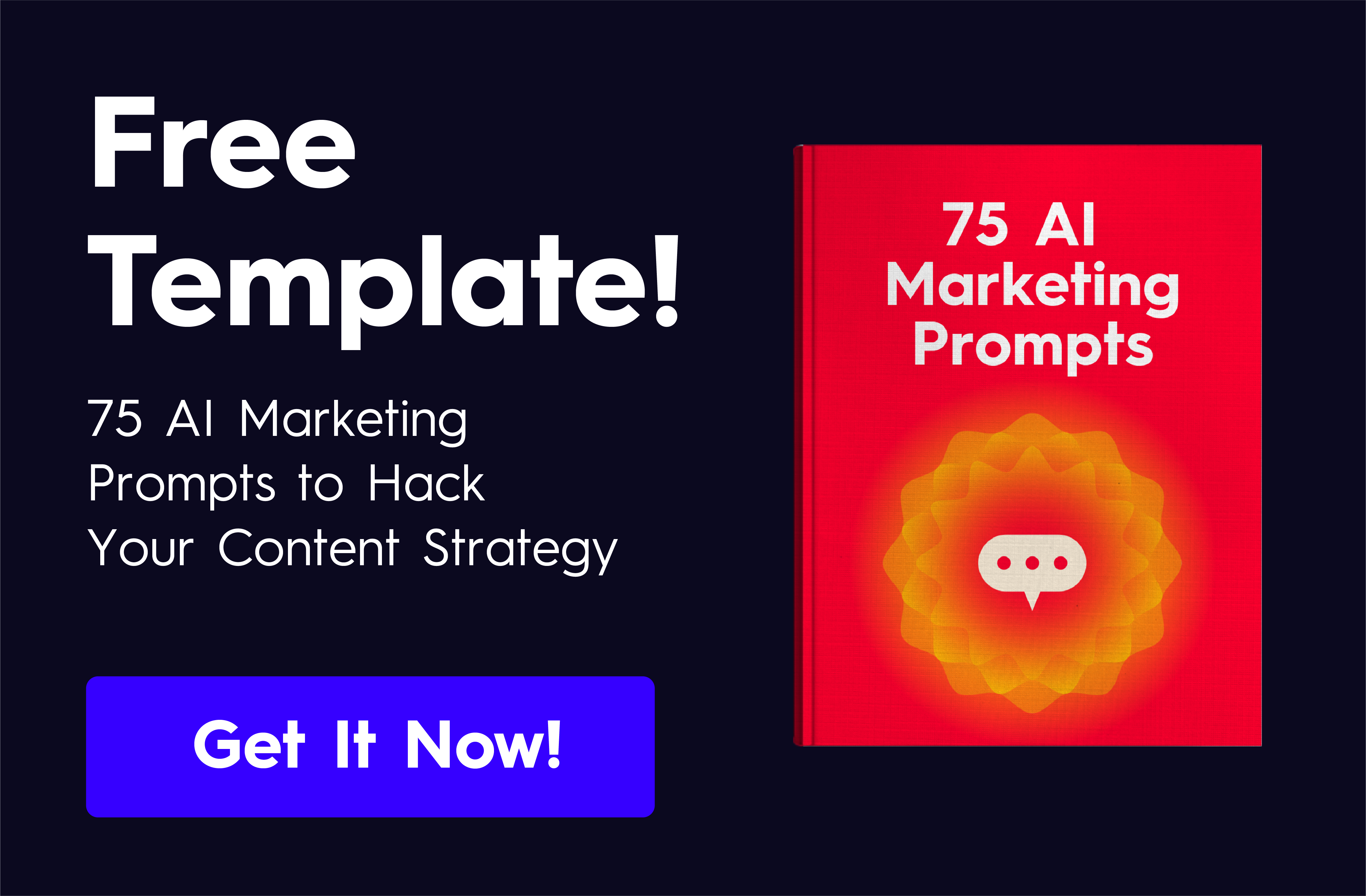AI has brought a lot of excitement and uncertainty for marketers. It can boost productivity. It can synthesize data in a snap. But there’s one big question on everyone’s mind: What does AI mean for SEO?
Since its debut, we’ve seen a flood of AI-generated content hit search engines with varying degrees of success. This has been great for some marketers, helping them churn out a high volume of net new content to outrank their competitors. For others, it has been a nightmare as they struggle to maintain rankings, as well as quality. Some say SEO is done for. Some say it’s stronger than ever. So what’s the truth?
We’ve been deep in the trenches, working to decipher the latest data, algorithm updates, and more to answer some of your biggest questions about AI and SEO—and help you move forward confidently.
So, Is SEO dead?
Definitely not. But it is evolving faster than ever before, and it will continue to evolve and incorporate more AI capabilities.
What Will the Future of SEO Look Like?
Essentially, it will be bolstered by human and AI collaboration (not just one or the other).
When AI first debuted, many marketers went all in, churning out tons of content that flooded the engines. But we quickly saw that content muddy the Internet, resulting in pages and pages of indistinguishable fluff.
Lower-ranking brands have had to fight for any visibility, and higher-ranking brands have had to fight to hold onto their keywords. (If you saw your traffic tank in the last year, this is why.)
AI-generated content will continue to be a powerful tool, but when it comes to SEO, Google is working hard to reign things in and apply AI in more helpful ways. There are two big shifts afoot.
First, with the rise of AI-generated content, Google is trying to crack down on the type of AI clickbait that has spammed the Internet. Whereas sites could game the system by publishing massive amounts of AI-generated content, new rules will punish sites for this quantity-over-quality approach. (Also, as more cases of plagiarism pop up with AI-generated content, brands that rely solely on this tech to create content may find themselves in hot water.)
Google says algorithm changes will reduce low-quality, unoriginal content in search results by 40%.
Secondly, Google plans to incorporate more AI capabilities into its new search tool: Search Generative Experience (SGE). With this tool, when you search for something, instead of showing you a list of results to click through and read to gather information, SGE crawls the Internet, condenses the information it finds, and displays an information-rich page that offers you a synopsis of what you’re looking for, including snippets, images, additional links, questions, or deep dives—all on one page.
This means the way we search, and expect people to find our brand, will change. It used to a mad dash to rank page 1 for a specific keyword. With this shift, information will be curated by the search engine, which does not necessarily pull from page 1-ranked content, as it aims to provide the most relevant answer to the user’s specific query.
That said, SGE is still in its experimental phase—it hasn’t been widely adopted yet. But it does give us a blueprint of what the future will look like. But what does that mean for your brand? Are you completely doomed? No, the future is brighter than you think.
How Can I Compete in SEO?
In this turbulent time, trying to get your content to rank can feel like an uphill climb in roller skates, especially if you were slow to adapt to AI-generated content. The good news is that this new wave of Google updates can put the ball back in your court—if you approach SEO intentionally.
So, as you craft your SEO strategy, here are five key strategies to outrank the competition and work with—not against—the robots.
1) Focus on longtail keywords.
Traditionally, the goal in SEO was to capture the most popular keywords by creating rich content that comprehensively covered the topic. The problem?
- Those keywords are highly competitive and difficult to rank for because everyone is going after them. They also tend to attract a large but generic audience that is not necessarily interested in what you do specifically.
- Because Google boosts rich, high-value content, larger brands (with higher domain authority and more marketing budget) can take the top spots by writing the longest and most dense posts possible.
These issues have made it more difficult for smaller brands to compete. In some ways, they have also led to a less-than-ideal user experience, as word count has seemingly become the marker of “rich” content. That’s why every recipe online starts with a 2,000-word story. That’s why our own agency struggles to rank against a marketing-platform-that-shall-not-be-named that publishes 20,000-word marketing guides. (Who has the time to read those novels while searching for a quick overview?)
All this to say, the old playbook has become increasingly irrelevant, especially when AI tools can spit out lengthy article after article. The smartest strategy now is to focus on long-tail keywords. (Longtails are keyword phrases that include multiple words.) There are multiple reasons for this.
- Google’s SGE will focus on the most relevant content for a user’s query. If you can write authoritatively on that specific topic (e.g., “durable paint for your kitchen cabinets” vs. “cabinet paint”), you are more likely to get served. Even better, SGE doesn’t necessarily pull from current page 1 ranking content; it focuses on specificity. Longtail keywords give you a better chance of being seen.
- Your most valuable audience is looking for specific information. Instead of targeting those broader keywords, target low-volume, high-conversion keywords that relate to what you do (e.g., “digital marketing agency for SaaS companies” vs. “marketing agency”). Remember: Content that attracts 10 potential customers is much more effective than content that attracts 100,000 random visitors.
According to Neil Patel, longtail keywords with 7+ words drive the most revenue.
Tip: Overall traffic is no longer the most relevant metric. Focus on generating traffic to your highest-revenue keywords. (See our guide to choose the best keywords for more on that.)
2) Create content that AI can’t.
Interestingly, although AI-generated content has made it harder to rank in general, the posts that rank the highest are still human-generated posts.
As Google seeks to punish AI-generated spam, you need to do everything you can to add your humanity, experience, and unique perspective to your content. In essence, prove that you’re not a robot—and that you really know what you’re talking about. There are many ways to do this:
- Use and cite credible sources
- Add quotes, anecdotes, and expert takes
- Add statistics/data
- Add author credentials or experience
- Use real-life examples or case studies
- Encourage your audience to create user-generated content
Also, be mindful of your tone. You want to be:
- Inviting
- Digestible
- Organic (don’t stuff a ton of keywords)
Tip: Provide additional content that doesn’t just educate your audience but helps them do something. Templates and toolkits are particularly helpful for this. (On that note, you can check out our resources library, which is full of free downloads.)
3) Build your brand awareness and reputation.
Because reputation and credibility will set you apart from generic AI-generated content, SGE wants to know that you’re a legit, well-respected source. So it’s important to build and bolster your reputation through other sources.
- Grow your social following
- Increase domain authority.
- Get featured in publications.
- Increase online mentions.
- Get high-quality reviews.
Tip: If you want to increase your domain authority, reach out to sites with unlinked brand mentions and/or broken links and ask them to link to you.
4) Combine human-created content + AI to create the best content.
AI-generated content is not inherently a problem; it’s spammy AI-generated content that is the problem. This type of content is generic, provides very little value, and adds nothing interesting, new, or worthwhile to the conversation.
But that doesn’t mean AI can’t be a great tool to support your content creation, as it can assist with:
- Brainstorming
- Research
- Alternative perspectives
- Credible sources
- Interesting examples
- Outlines
- Etc.
Just know that if you rely on AI alone, it’s going to write the article everyone else has. But if you use it as an assistant, and then infuse your own voice, perspective, experience, and examples, you can create a much more meaningful and valuable piece of content.
Tip: The right prompts will get you the best AI results. Download our free roundup of 75 AI marketing prompts, and see our ultimate guide to AI for more ways to use AI intelligently.
5) Consider UX factors that affect SEO.
Good content is the secret to strong SEO, but don’t forget the technical things. Your brand experience is more important than ever, and people will quickly bail if your site is not up to snuff.
Constantly test your site for:
- Page speed (load time)
- Responsive design (mobile)
- Site copy (bounce rate)
- Navigation and layout (clear pathways)
- UI design (visual elements)
Tip: When it comes to your website, you should identify the clear journey you want your site visitors to take. Audit your site to ensure the UX and messaging are optimized to move people along that journey.
How to Improve Your SEO Going Forward
SEO marketing has always been in flux, but there has never been a more volatile time, so it’s important to stay in the mix and maintain focus. Fortunately, there are a few things you can do to stay ahead of the game.
- Adjust your strategy regularly. Things are changing quickly; do regular keyword research, assess your success metrics, and adjust course as needed.
- Update and refresh your content. Don’t let your existing content archive go stale. Regularly review, tweak keywords, check for dead links, and update posts to keep them relevant.
- Stay educated about best practices. See our ultimate guide to SEO to find out more about current best practices and how to distinguish your brand through content.
But if your efforts just haven’t hit the mark, or your strategy feels stagnant, consider bringing in a partner. Start your search with our tips to find an agency with the right expertise, find out more about what it’s like to work with us, or hit us up. Either way, we wish you high rankings and even higher sales.





